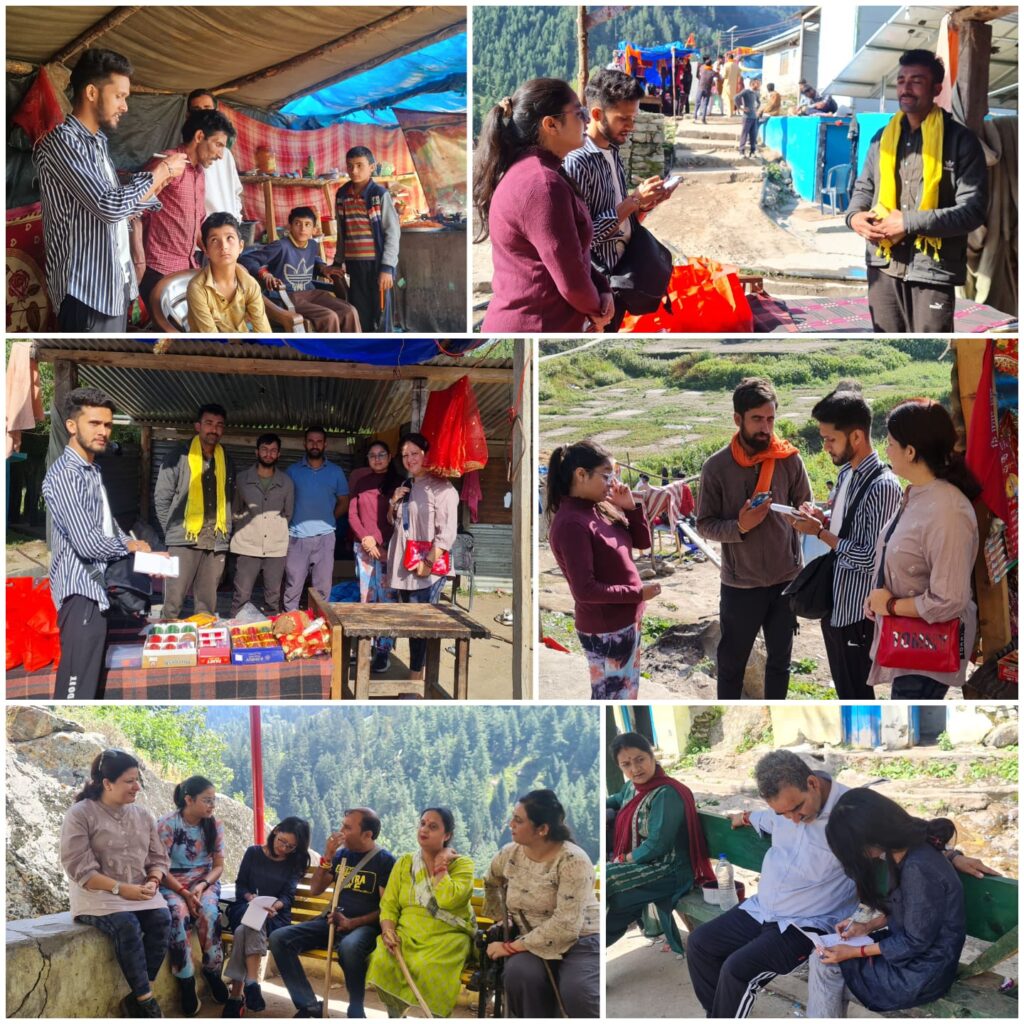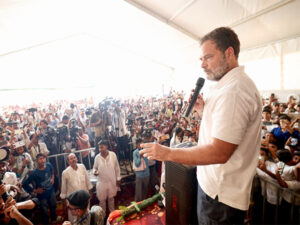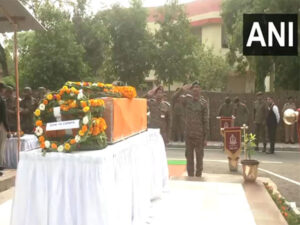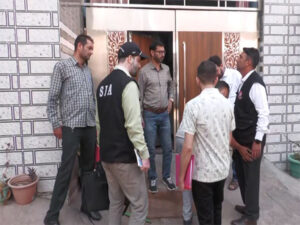Jammu University Dept of environment organised Interaction-cum-Environmental Awareness drive at Machail, Kishtwar
JAMMUSeptember 6: Department of Environmental Sciences organized a two-day Interaction-cum-Environmental Awareness drive during the ongoing Machail Yatra pilgrimage which is organized every year from Gulabgarh to the high-altitude Himalayan shrine of Mata Chandi at Machail Village located at an altitude of 9,705 ft in Kishtwar district of J&K UT.

The drive was organized to sensitize the devotees and locals about the importance of sustainable religious tourism including proper waste disposal, conservation of flora and fauna, and protecting the cultural and religious heritage of the area.A one-to-one interaction with the locals, devotees and visitors was led by Dr. Deepika Slathia, Teacher In-charge from the department and an interview and exchange of thoughts on sanitation, cleanliness, health-hygiene, and eco-friendly temple premises were conducted by Departmental representatives Ms. Tsering Dolkar, Ms. Shivali Sharma and Mr. Mohinder Kumar.
The drive was organized under the overall supervision of Prof. Piyush Malaviya, Head of the Department, in line with the department’s objectives to integrate classroom teaching with informative practical support and increase students’ field-based knowledge by encouraging them to visit the regional areas of ecological and cultural importance. The team trekked through the mountains, forests and streams downhill covering villages like Hamori, Chashoti, Kundhail to reach the base at Gulabgarh, Kishtwar.
While interacting with the locals, the team stressed upon promotion of religious tourism while maintaining socio-economic and ecological balance in the area and suggested adopting a holistic approach for environmental management of the area including mass awareness regarding the overall cleanliness and sanitation in the area during the yatra period. Avoiding pollution of water bodies, increasing the number of toilet facilities, provisions of dustbins at designated spots, involvement of locals in waste management, and avoiding the use of single-use plastic were suggested to make the area clean, eco-friendly and plastic-free religious cum heritage destination and a rich biodiversity spot. The Departmental representatives also talked about the importance of the water bodies in the area and the need for their conservation.
The locals appreciate the initiative made by the Department of Environmental Sciences and extended their full support during the drive.






